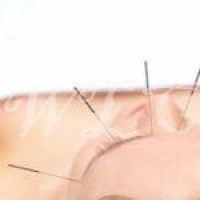Ulcer Diet
- Hits: 5867
An ulcer is a hole that forms in the lining of the stomach or duodenum (small intestine). The most common ulcer symptom is a burning pain in the abdomen between the breastbone and the navel. The pain often occurs between meals and in the early hours of the morning. It may last from a few minutes to a few hours and may be relieved by eating or by taking antacids.
What Causes Ulcers?
Until recent times doctors believed lifestyle factors such as stress and diet caused ulcers. This is now thought unlikely, although some lifestyle factors, such as smoking and drinking alcohol and caffeine are still suspected of causing problems. Scientists now believe, however, that the primary cause of most ulcers is infection with the bacterium Helicobacter pylori (H. pylori) a type of bacterium that infects the stomach. Another cause is the use of nonsteroidal anti-inflammatory drugs (NSAIDs), such as aspirin, ibuprofen and naproxen.
Ulcers and Diet
As far as diet is concerned, while a bland diet may reduce abdominal symptoms in some patients, there is no evidence that any specific type of diet helps to heal ulcers more quickly. There are also no data to support use of any particular diet to prevent ulcer formation. People who find that certain foods cause irritation should discuss this problem with their doctor. Smoking has been shown to delay healing and prompt recurrence.
Helpful Guidelines for Ulcer Diet
Although there is no evidence to prove that a particular diet can prevent ulcers from occurring, or can accelerate healing, it is possible to restrict or avoid foods that may cause gastric irritation and excessive gastric acid secretion. This may help prevent uncomfortable side effects such as heartburn.
The following diet and lifestyle advice may be helpful for those people with gastroesophageal reflux disease, esophageal ulcers, peptic ulcer disease, dyspepsia, chronic gastritis or excessive stomach acid:
-
Antacids are most likely to maintain a proper level of stomach acid. Do not use milk as antacid therapy.
-
Eat regularly throughout the day. Avoid periods of hunger or overeating.
-
Eat slowly and chew foods thoroughly.
-
Maintain upright posture while eating and for about an hour afterwards.
-
Avoid eating within 3 hours before going to bed.
-
Check whether caffeine, chocolate, citrus or tomato products cause discomfort. If so, avoid them. This advice applies to all suspect foods.
-
Follow a lower-fat diet regime and avoid very high-fat foods.
-
Avoid hot or strongly flavored seasonings like: garlic, barbecue sauce, chili sauce, chili pepper, horseradish, black pepper, chili powder and other highly spiced foods.
-
Restrict your consumption of alcohol.
-
Stop smoking.
-
Reduce your intake of aspirin and aspirin-containing medicines.














